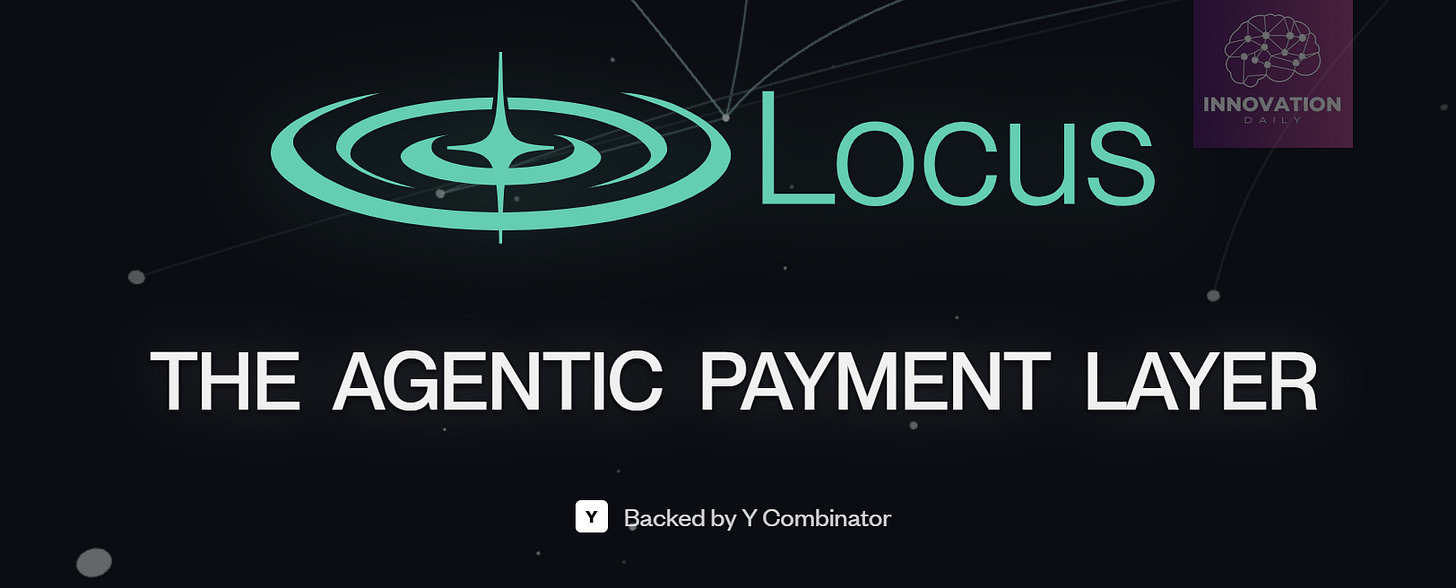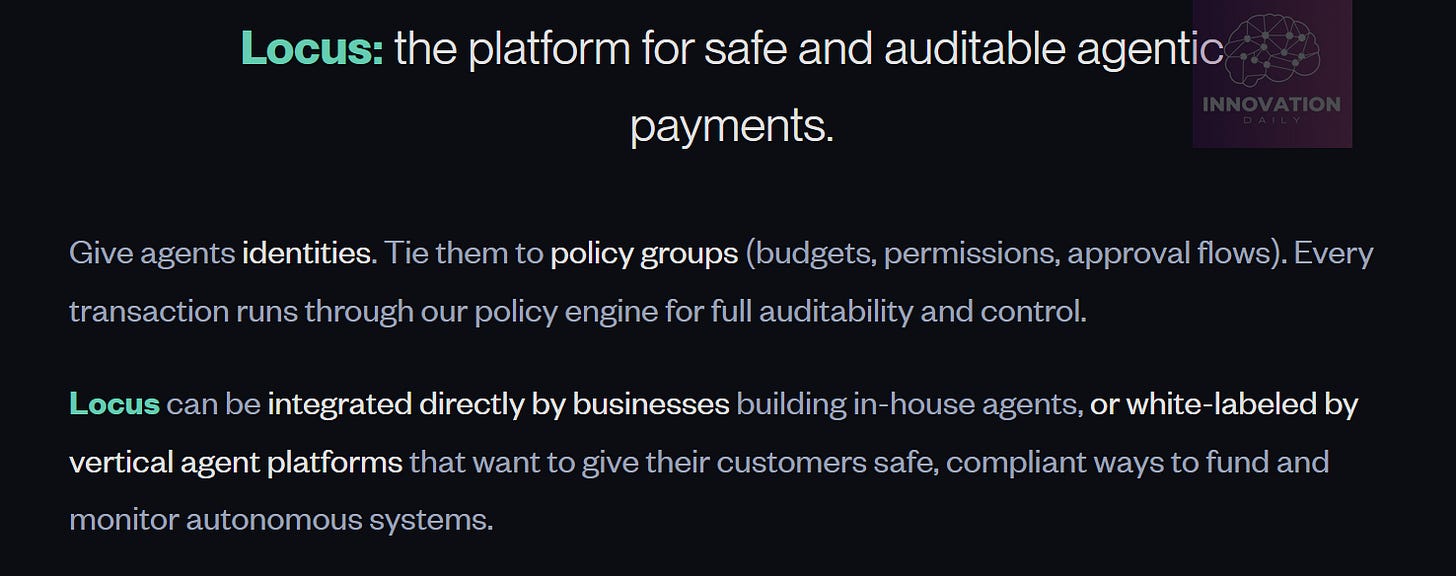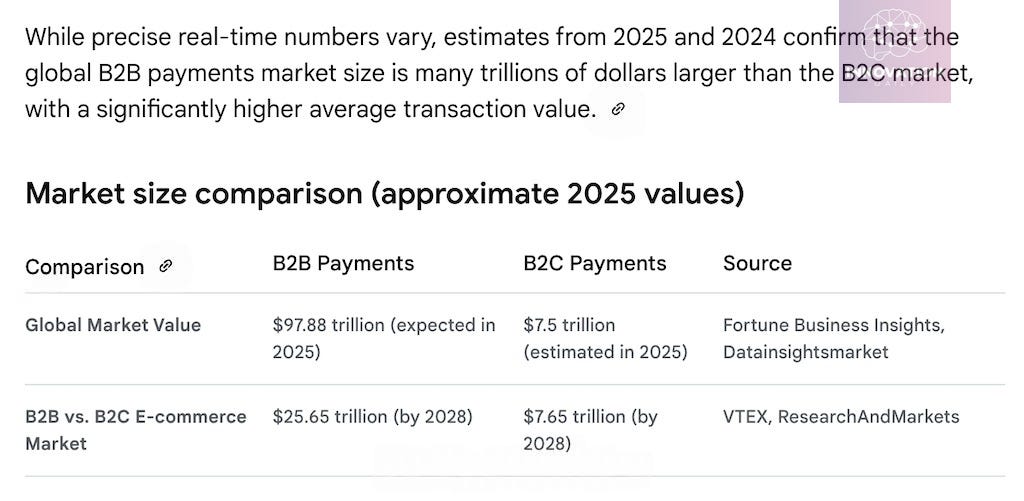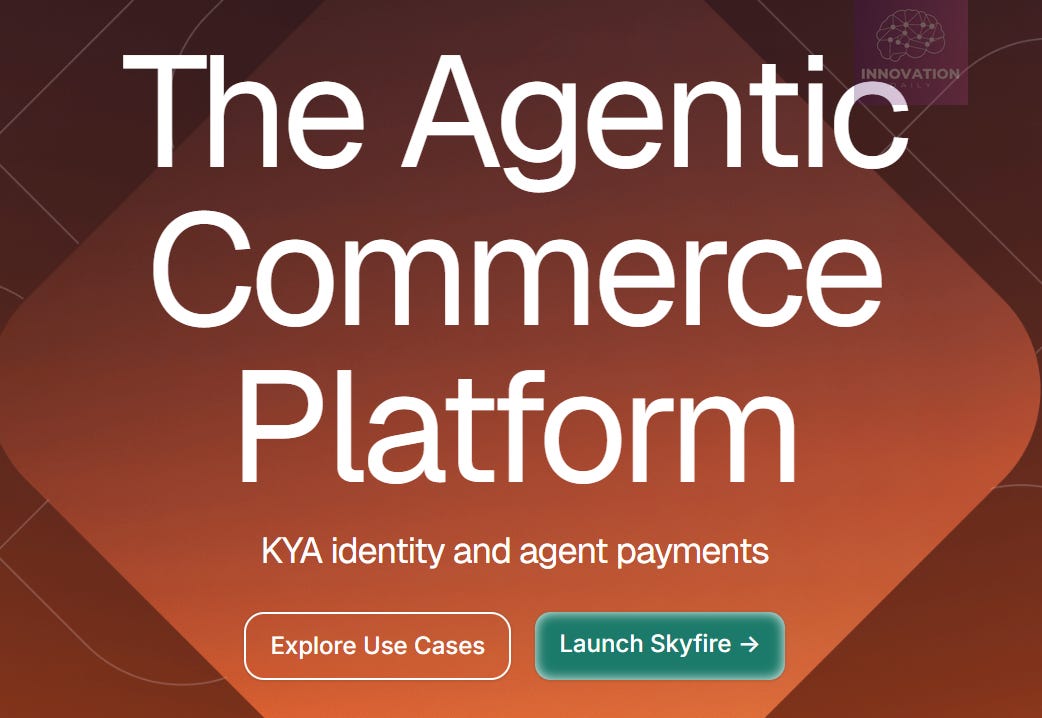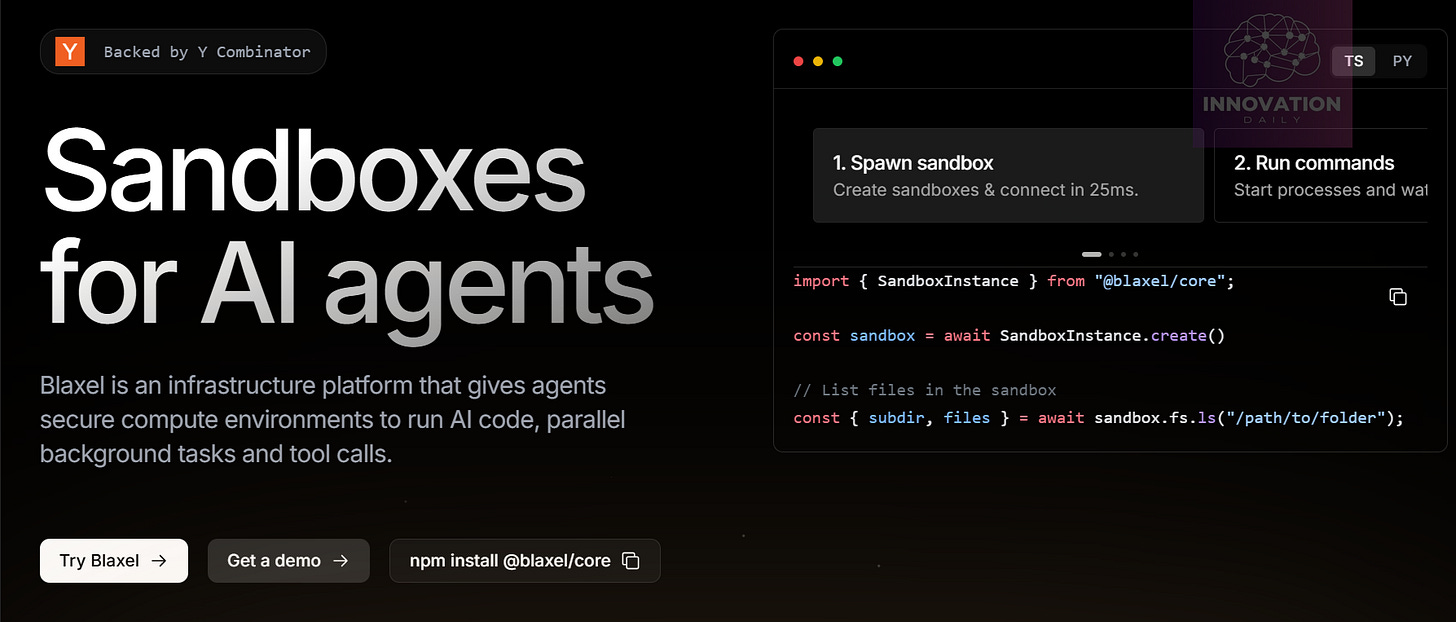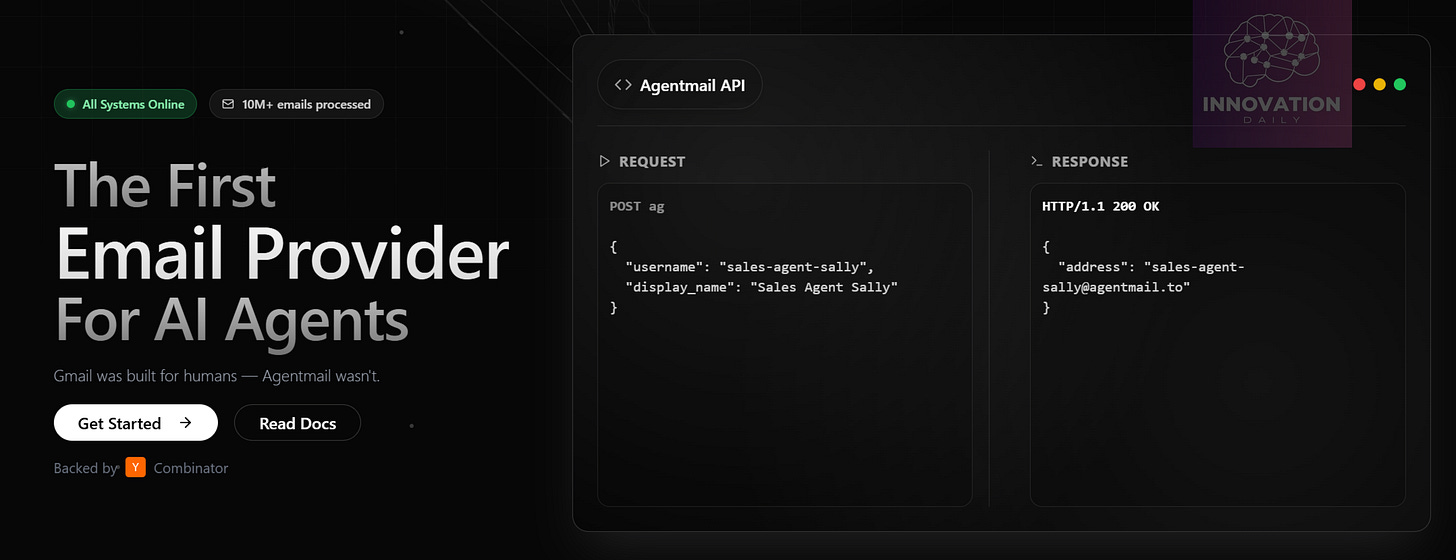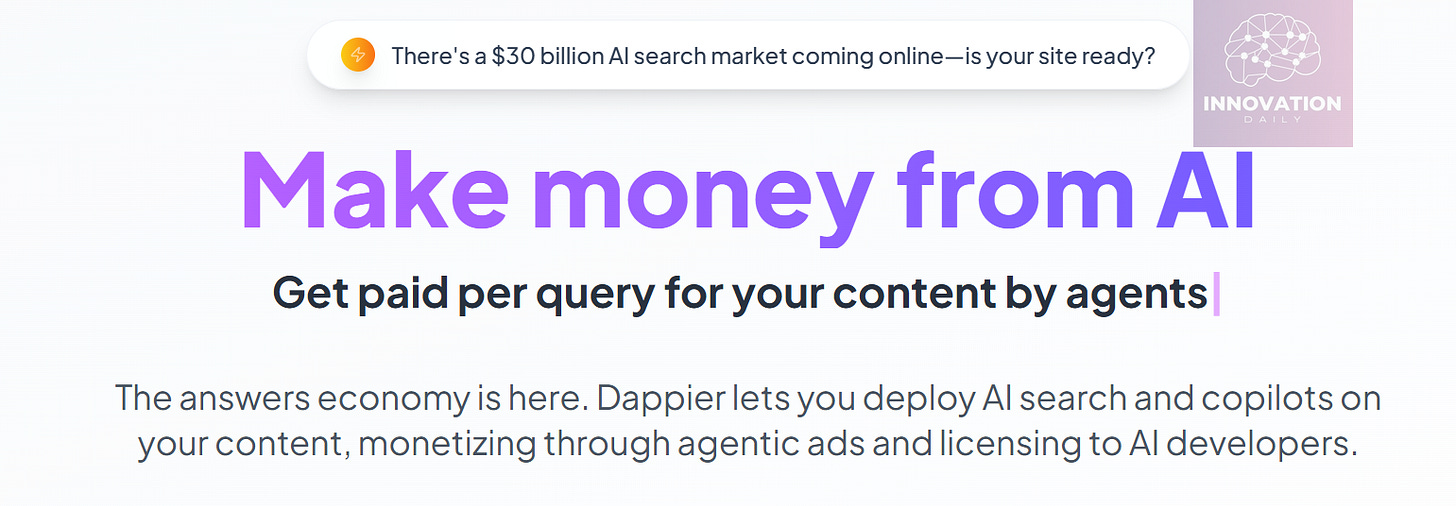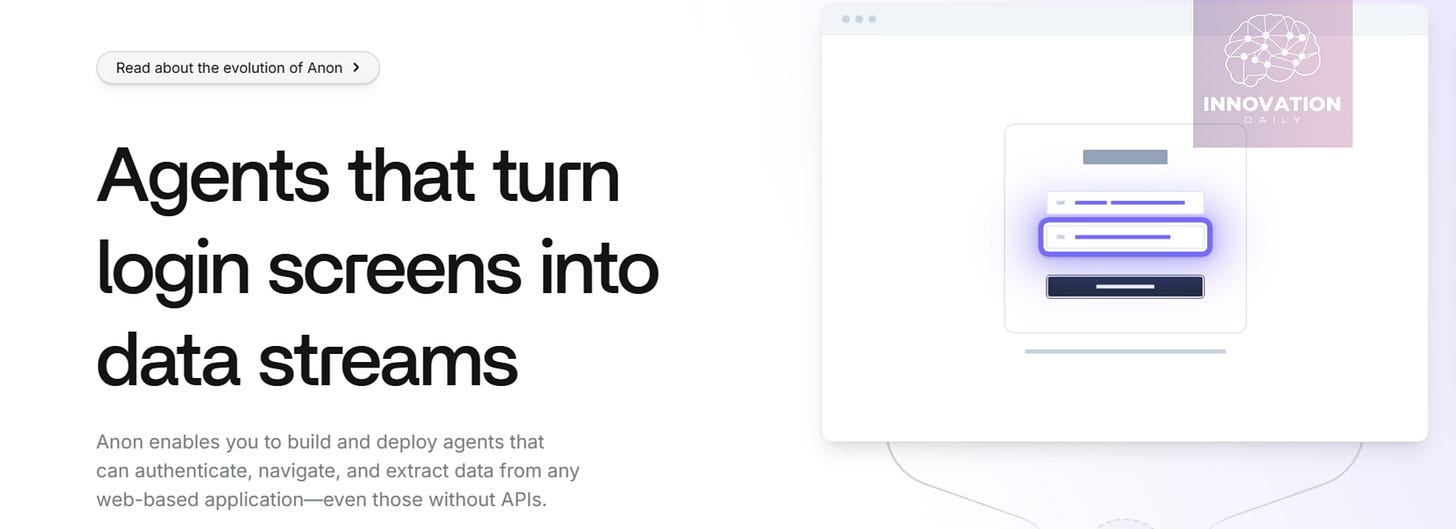The Birth of the Machine Economy
Today’s featured startup is creating the infrastructure that lets AI agents move money, make decisions, and do business on their own
Project Overview
Locus is developing a platform that enables AI agents to make autonomous payments.
Unlike traditional software, which humans use as tools, AI agents act more like independent entities — capable of completing complex tasks on their own. But as they take on more autonomy, they’ll inevitably encounter a familiar human challenge: they’ll need to pay for things — from access to premium data to external services required to accomplish their goals.
Big tech players are already exploring this space. Google and OpenAI are each developing payment protocols for AI agents — but both are primarily focused on B2C use cases, where agents make payments on behalf of humans (like online shopping or booking flights).
Locus, however, is tackling a much larger and more complex opportunity: B2B payments between companies — the true engine of global commerce. These transactions demand higher standards of security, compliance, and auditing — and AI agents need to learn to meet those standards too.
Each AI agent on the Locus platform receives a corporate identity and operates under a defined payment policy — governing what it can spend, how much, and under what approval workflow. This ensures that every corporate payment made by an AI agent is transparent, controllable, and auditable.
The platform also allows seamless integration with both in-house and third-party AI agents through APIs — so companies can connect external intelligent systems to their internal financial processes without friction.
In a demo, Locus shows a practical scenario:
An AI agent is tasked with creating a marketing post. To do so, it reaches out to freelancers — human or AI — and collects bids. A human team then selects one proposal through the approval chain defined in the corporate policy. The AI agent assigns the task, verifies the completed work, and initiates the payment.
Before funds are released, the system checks compliance with policy rules, generates an invoice, executes the payment, logs it into the accounting system, and marks the invoice as paid — automatically.
Locus recently joined Y Combinator, officially announcing its platform on YC’s website just days ago.
What’s the Gist?
A week ago, Locus’s founder asked Sam Altman:
“Should AI agents be able to pay for things on their own?”
Sam’s answer was simple: “Yes, of course.”
That vision is becoming reality. As AI agents gain autonomy, they’ll form the backbone of a new machine economy — one where digital entities transact with humans, other agents, and services to fulfill their goals.
This economy is still in its infancy, which means now is the best moment to build its foundations. The startups that start building today will define how it operates tomorrow — and Locus is one of the first movers.
The potential is enormous. The B2B payments market is projected to hit $97.88 trillion by 2025, compared to just $7.5 trillion for B2C payments. Even when narrowed down to B2B e-commerce, the market is expected to reach $25.65 trillion by 2028 — far surpassing consumer transactions in both scale and value.
So yes — B2B payments for AI agents could become an even bigger market than B2C.
And Locus isn’t the only one seeing this opportunity.
Skyfire is building a similar payment platform for AI agents and has already raised $9 million, including $500K from a16z after the company was first covered publicly.
Payman launched its platform just a week before securing its first $3 million investment, followed by two more rounds — one for $800K and another for an undisclosed amount.
All of this signals growing investor confidence in one core idea: autonomous AI agents will soon need to handle payments securely, just like humans do.
Key Takeaways
The rise of Locus fits into a broader ecosystem of infrastructure startups building the tools AI agents will depend on.
Several fellow Y Combinator alumni are already shaping this emerging landscape:
Blaxel created a platform for testing and hosting AI agents, later raising $7.3 million in funding.
AgentMail built an “AI Gmail” — giving agents their own email addresses for authentication across services.
Dappier launched a marketplace where AI agents can purchase data from content sites, paying per transaction.
Anon started as a tool for AI agents to log into social platforms on behalf of their owners — and evolved into a full-scale solution that lets agents interact even with websites lacking an API. The startup has raised $14.9 million so far.
Together with Skyfire, Payman, and Locus, they form the vanguard of a new kind of infrastructure — one built not for humans, but for autonomous digital entities.
AI agents are becoming more like people every day. That means they’ll need not just better algorithms — but their own financial systems, communication channels, and security layers.
Those who start building this infrastructure now will be the ones shaping the economy of autonomous AI in the years ahead.
So, if we treat AI agents as people — what essential capability are they still missing?
Company Info
Locus
Website: paywithlocus.com
Latest Round: $500K 01.10.2025
Total Funding: $500K across 1 round



